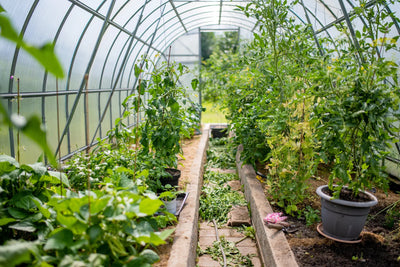When it comes to preparedness, few things are as critical as having a solid plan for long term food storage. If you're serious about self-reliance—whether you're gearing up for natural disasters, economic instability, or just want peace of mind—then having a stash of reliable, nutritious food is non-negotiable. Let’s break down why investing in long term food storage is so important and how to do it right.
Why Long Term Food Storage is Essential for Preppers
You Can't Predict the Future—But You Can Prepare for It
We’ve seen it time and again—unexpected events disrupt supply chains, empty grocery shelves, and leave unprepared families scrambling. Hurricanes, wildfires, power grid failures, and even geopolitical tensions can all impact food availability. A well-stocked food supply gives you the ultimate insurance policy against the unknown.
Modern Supply Chains Are Fragile
Today’s “just-in-time” grocery delivery systems work fine—until they don’t. When disaster strikes, store shelves are often wiped clean within hours. With long term food storage , you’re no longer at the mercy of these fragile systems.
Tip from an experienced prepper: I always recommend stocking food that’s designed to last—think 25 years or more. Products like Legacy Premium’s Long Term Food Storage from Seed Armory are crafted for exactly this purpose, giving you shelf-stable peace of mind.
Table of Content
What Makes Food "Long Term"?
Shelf Life: The First Rule of Survival Food
Not all food is created equal when it comes to storage life. While canned goods might last a few years, true long term food storage is designed to last 20-30 years without losing nutritional value or flavor.
Packaging Matters
Look for food sealed in Mylar pouches with oxygen absorbers and stored in durable buckets. This is the gold standard for preppers. Legacy’s food buckets on SeedArmory.com fit the bill—durable, stackable, and built for decades of storage.

Pros:
Decades of reliability
Properly packaged long term food storage (like Legacy’s 20-30 year shelf life products) gives you security that lasts for generations.Protection against spoilage
Mylar pouches with oxygen absorbers and sturdy buckets defend your food from moisture, pests, and air exposure.Space-efficient stacking
Durable food buckets are designed to stack neatly, helping you make the most of limited storage space.
Cons:
Heavy and bulky containers
While durable, the buckets and bulk packaging can be heavy and take effort to move or reposition.Upfront packaging cost
The advanced packaging (Mylar, oxygen absorbers, food-grade buckets) adds to the initial price compared to basic pantry items.Storage condition sensitivity
Even with great packaging, you’ll need to store buckets in a cool, dry environment—extreme heat or humidity can still shorten shelf life.
The Nutritional Angle: It’s Not Just About Calories
Sure, calories will keep you alive—but balanced nutrition keeps you strong and healthy. When selecting your long term food storage:
Check for variety. A good stash includes grains, proteins, fruits, vegetables, and dairy.
Look for low-sodium and non-GMO options. Many of the Legacy Food Storage items at Seed Armory meet these standards, so you're not trading health for shelf life.
Pay attention to servings and portions. Don’t be fooled by high-serving counts that offer small, low-calorie portions. Quality food storage, like the Legacy 120-Serving Entree Bucket, provides hearty, satisfying meals.

The Realities of Crisis Living: Why Planning Ahead Matters
Stress Eats Away at Energy
During a disaster, you're going to burn more calories doing physical tasks, securing your home, or simply managing stress. Having filling, ready-to-cook meals like Legacy’s Pasta Alfredo or Enchilada Beans & Rice ensures you can refuel properly without extra effort.
Water Considerations
Long term food storage is often dehydrated or freeze-dried, so don’t forget water storage solutions. Pair your food stash with rainwater collection or purification systems.

How Much Long Term Food Storage Do You Need?
There’s no one-size-fits-all answer, but here’s a good rule of thumb:
Short term (up to 3 months): 90 meals per adult
Medium term (3-12 months): 270-1,000+ meals per adult
Long term (1 year+): At least 1,100 meals per adult
This is where Seed Armory’s bundles come into play. The Legacy 183 Serving MEGA Sample Pack is designed for long-haul survival, offering over a year's worth of food for a family of four.

Common Mistakes in Long Term Food Storage (And How to Avoid Them)
Storing the Wrong Foods
It’s tempting to load up on rice and beans, but diversity matters. Add meals you’ll actually want to eat—variety can make a huge difference in morale.
Poor Rotation
Even long term food should be checked and rotated as part of your annual preparedness review.
Ignoring Storage Conditions
Keep food cool, dry, and out of direct sunlight. Even the best packaging can’t fully protect against heat and moisture.
Building Your Food Storage Plan: Where to Start
Step 1: Assess Your Needs
How many people are you prepping for? What are their dietary restrictions?
Step 2: Start with Essentials
Focus on the basics—calorie-dense entrees, then add fruits, veggies, and snacks.
Example: The Legacy 360-Serving Entree Bucket gives you a rock-solid base, with a variety of tasty, easy-to-prepare meals.
Step 3: Layer in Comfort Foods
Don’t underestimate the power of morale boosters. Legacy’s Freeze-Dried Strawberries or Apple Slices are great for this.
Step 4: Review and Expand
Once you have the basics, build out with items like gluten-free or bulk grain packages to meet specific needs.

The Seed Armory Legacy Food Storage Collection: A Prepper’s Best Friend
At this point, you’re probably thinking about your next steps. If you’re ready to build or expand your long term food storage, check out Seed Armory’s Legacy Long Term Food Storage collection . Here’s why it’s worth your attention:
Up to 25-year shelf life food storage
Non-GMO, made in the USA
Low-sodium and gluten-free options
Stackable, sturdy packaging
Huge variety of entrees, fruits, veggies, and snacks
Popular items include:
Legacy 120-Serving Entree Bucket – A great starter pack that offers hearty, satisfying meals.
Legacy 4320-Serving Family Survival Package – Ideal for serious preppers who want to secure a year’s supply for the family.
Legacy Freeze-Dried Fruits & Vegetables – Perfect for diversifying your storage with vital nutrients.
Final Thoughts: The Best Time to Prepare is Before You Need It
If there’s one thing I’ve learned over the years of prepping, it’s this: hope for the best, prepare for the worst. A well-stocked supply of long term food storage gives you and your loved ones security in uncertain times.
Whether you're just starting your food storage journey or looking to bulk up your existing supply, take it seriously—and consider investing in a trusted, tested brand like Legacy Food Storage, available at Seed Armory. You’ll thank yourself later.
Ready to take the next step? Explore the Legacy Long Term Food Storage collection today and give yourself the peace of mind that comes with true preparedness.
Frequently Asked Questions
How long does long term food storage really last?
High-quality long term food storage, like the Legacy Food Storage options from Seed Armory, is designed to last 20-30 years when stored properly. The key is in the packaging—Mylar pouches, oxygen absorbers, and food-grade buckets protect food from moisture, light, and pests.
Where should I store my long term food supply?
Always aim for a cool, dry, dark place —think basements, interior closets, or storage rooms. Avoid places that get hot, humid, or have temperature swings like garages or attics. Even the best packaging can’t fully protect food in poor storage conditions.
How much food should I store for my family?
It depends on your goals. A good starting point is 90 meals per adult for short-term disruptions (about a month), and at least 1,000-1,100 meals per adult for a full year of preparedness . Seed Armory’s Legacy bundles, like the 120-serving bucket or the 4320-serving family pack, make it easy to scale up.
What types of meals come in long term food storage kits?
Legacy long term food storage kits typically include hearty entrees like pasta dishes, beans and rice, and casseroles, along with freeze-dried fruits and vegetables . Many options are low-sodium, non-GMO, and some are gluten-free to meet dietary needs.
Does long term food storage need to be rotated or replaced?
Even with a 25+ year shelf life, it’s smart to check your stock annually . Look for damaged packaging or signs of moisture intrusion, and rotate items if you choose to incorporate them into your everyday use.
Is long term food storage expensive to get started?
There’s an upfront cost, especially if you go for high-quality, shelf-stable foods. But think of it as an investment in security —you’re buying peace of mind and locking in today’s prices against future inflation and shortages.
What makes Legacy Food Storage from Seed Armory a good choice?
Legacy Food Storage stands out for its long shelf life, USA-made quality, non-GMO ingredients , and durable packaging that’s easy to store. Plus, Seed Armory makes it simple to build your plan with a variety of bucket sizes and bundle options.














